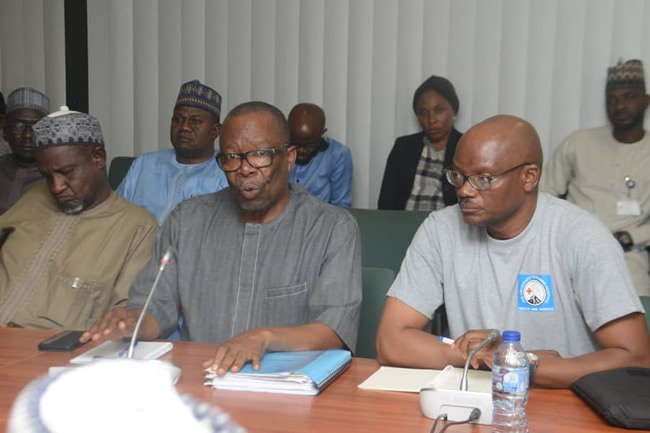Education
Real reason we rejected IPPIS, GIFMIS – ASUU

The Academic Staff Union of Universities (ASUU) has reaffirmed its rejection of two federal government payment platforms, emphasizing its preference for the University Transparency and Accountability Solution (UTAS), a system it developed independently.
ASUU continues to oppose the Integrated Personnel and Payroll Information System (IPPIS), the platform through which the federal government processes the salaries of over 789,000 employees across various sectors, including university staff.
The union also opposes the Government Integrated Financial Management Information System (GIFMIS), which the government has approved as the new payment platform for ASUU members, effective from November.
In an interview with the News Agency of Nigeria (NAN), ASUU President Prof. Emmanuel Osodeke explained that the union’s opposition stems from its desire to maintain the autonomy of tertiary institutions in Nigeria.
READ ALSO : Strike looms as ASUU issues 14-day ultimatum to FG over lingering issues
“ASUU’s position is that the finances of the university should be managed by the Governing Council. That’s what the law says. It does not say by the Accountant General’s office,” Osodeke said.
He further elaborated on the process, noting that universities prepare and defend their budgets before the National Assembly. Once approved and signed into law by the President, the funds are meant to be disbursed to the Governing Councils, which are responsible for managing staff payments.
“That is the autonomy of the university we are talking about, as stipulated in the law,” he emphasized.
Osodeke criticized IPPIS for undermining university autonomy, interfering with internal affairs, and violating Section 24A of the Universities Miscellaneous Provisions (Amendment) Act of 2003. He also faulted recent guidelines from the Accountant General of the Federation (AGF), Dr. Oluwatoyin Madein, regarding the formal exit of federal tertiary institutions from IPPIS.
In a circular issued on Oct. 8, the AGF stated that the payroll for October 2024 would still be processed through IPPIS, while starting from November, the institutions would generate their payrolls, subject to verification by the IPPIS department before payment through GIFMIS.
However, Osodeke dismissed the new arrangement, saying, “GIFMIS is still an appendage of IPPIS. When you look at the circular, paragraph two says after universities have finished preparation, it will still come to OAGF IPPIS for verification before it is paid by GIFMIS, which means nothing has changed.”
He further criticized the current payment platforms, highlighting their flaws. “As at now, no university knows who is being paid what. IPPIS has been paying people who have been sacked, people who are non-staff members, and people who have left the university system. The Vice Chancellors cannot discipline any erring official. Even when you are being disciplined, the IPPIS or GIFMIS will still be paying your salary,” he added.
Osodeke refuted claims that ASUU is pushing for UTAS to cover up for lecturers working at multiple institutions. He clarified that Nigerian law allows lecturers to work in two institutions under certain conditions.
“As stipulated by the law, a lecturer can serve as an adjunct in another university or work part-time elsewhere. They can also serve as visiting professors, which is a global practice,” he explained.
He further noted that sabbaticals, where lecturers take a one-year leave to teach at other institutions, are also legally permitted. However, he stressed that teaching at more than two institutions violates the law.
“When you look at UTAS that we developed, any lecturer who has gone on sabbatical for more than the approved period will be rejected automatically. Also, any lecturer who has not met the six-year requirement for teaching before applying for sabbatical will be rejected,” he said.
Osodeke attributed the poor global ranking of Nigerian universities partly to the limited knowledge exchange between institutions.
Addressing allegations from the National Information Technology Development Agency (NITDA) that UTAS failed integrity tests, Osodeke insisted that the platform scored 97.3% in earlier assessments, outperforming IPPIS. He questioned the government’s continued reliance on IPPIS, despite UTAS’s higher performance.
ASUU has hinted at the possibility of going on strike over unresolved issues related to payment platforms but has delayed any action to allow the government time to finalize negotiations with a new committee.























